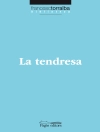Historically, phenomenology began in Edmund Husserl’s theory of mathematics and logic, went on to focus for him on transcendental rst philosophy and for others on metaphysics, philosophical anthropology, and theory of interpretation. The c- tinuing focus has thus been on knowledge and being. But if one began without those interests and with an understanding of the phenomenological style of approach, one might well see that art and aesthetics make up the most natural eld to be approached phenomenologically. Contributions to this eld have continually been made in the phenomenological tradition from very early on, but, so to speak, along the side. (The situation has been similar with phenomenological ethics. ) A great deal of thought about art and aesthetics has nevertheless accumulated during a century and a handbook like the present one is long overdue. The project of this handbook began in conversations over dinner in Sepp’s apa- ment in Baden-Baden at one evening of the hot European summer in the year 2003. As things worked out, he knew more about whom to ask and how much space to allocate to each entry and Embree knew more about how to conduct the inviting, preliminary editing, and prodding of contributors who were late returning their criticized drafts and copyedited entries and was able to invest the time and other resources from his endowed chair. That process took longer than anticipated and there were additional unfortunate delays due to factors beyond the editors’s control.
Tabella dei contenuti
Aesthetic Experience.- Aisthesis.- Appearance.- Architecture.- Antonio Banfi.- Beauty.- Simone de Beauvoir.- Oskar Becker.- Chinese Aesthetics.- Waldemar Conrad (1878–1915).- Creativity.- Cubism.- Dance.- Jacques Derrida (1930–2004).- Dream.- Mikel Dufrenne (1910–1995).- Ecological Aesthetics.- Empathy.- Enjoyment.- Fashion.- Film.- Eugen Fink (1905–1975).- Hans-Georg Gadamer (1900–2002).- Moritz Geiger (1880–1937).- Gender Aesthetics.- Nicolai Hartmann (1882–1950).- Martin Heidegger (1889–1976).- Michel Henry (1922–2002).- Dietrich von Hildebrand (1889–1977).- Edmund Husserl (1859–1938).- Imagination.- India and Intercultural Aesthetics.- Roman Ingarden (1893–1970).- Japanese Worlds.- Fritz Kaufmann (1891–1958).- Emmanuel Levinas (1906–1995).- Literature.- Henri Maldiney (1912–).- Jean-Luc Marion (1946–).- Media.- Maurice Merleau-Ponty (1908–1961).- Metaphor.- Methodology.- Music.- Maurice Natanson (1924–1996).- Nature.- NISHIDA Kitaro (1870–1945).- José Ortega y Gasset (1883–1955).- Painting.- Jan Pato?ka (1907–1977).- Photography.- Play.- Political Culture.- Religion.- Representation.- Marc Richir (1943–).- Paul Ricoeur (1913–2005).- Heinrich Rombach (1923–2004).- Jean-Paul Sartre (1905–1980).- Max Scheler (1874–1928).- Hermann Schmitz (1928–).- Alfred Schutz (1899–1959).- Secondary Senses.- Gustav Gustavovich Špet (1879–1937).- Style.- Theater.- France Veber (1890–1975).- Virtual Reality.- Work of Art.












